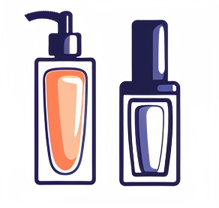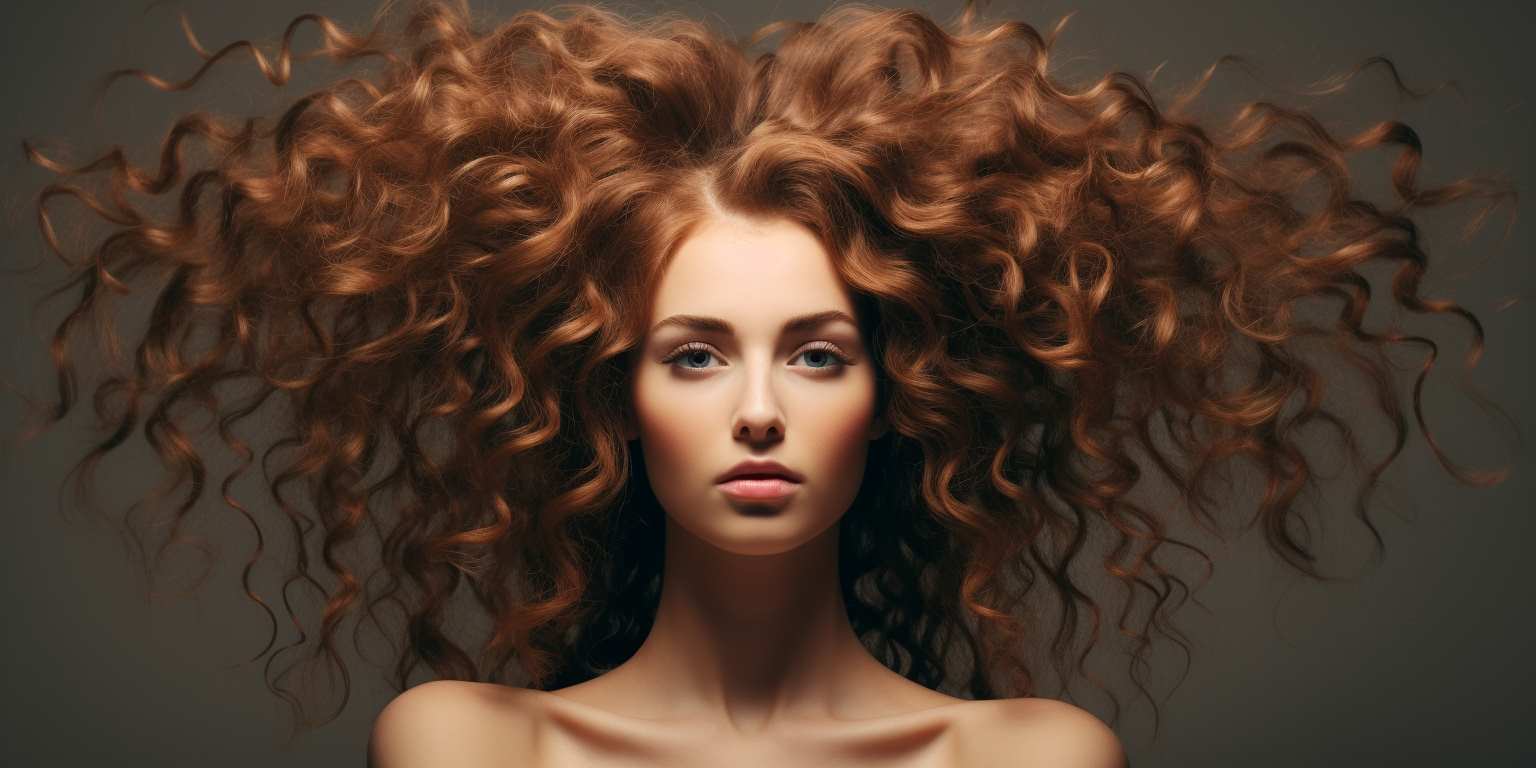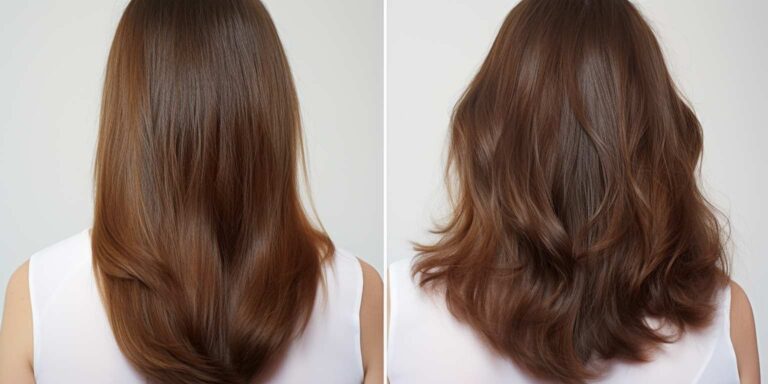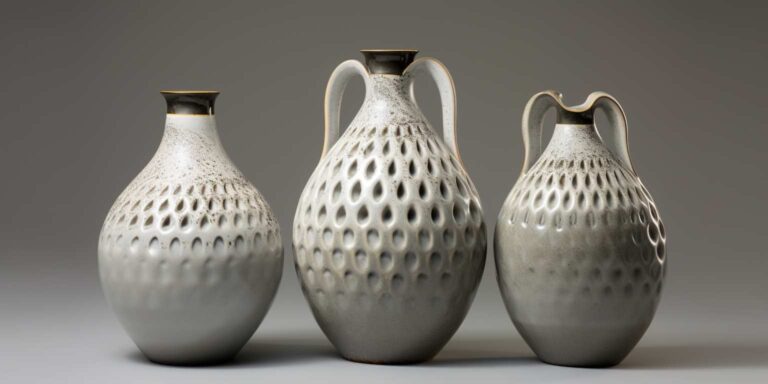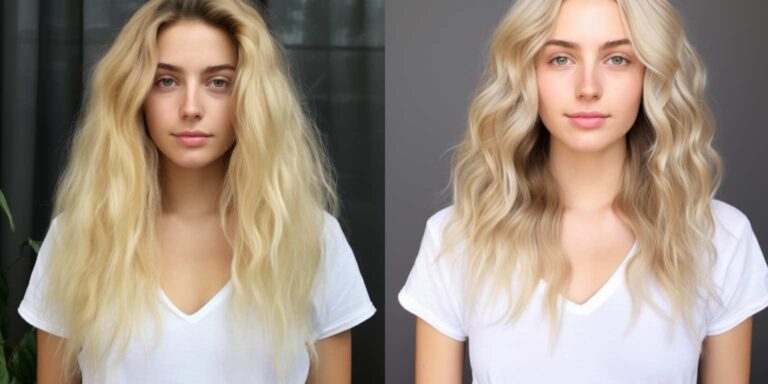Discover the best scalp cleansing shampoo for healthy hair
Scalp Cleansing Shampoo:
What distinguishes a scalp cleansing shampoo from regular shampoos is its targeted formulation. These shampoos are specifically designed to eliminate excess oil, dirt, and product buildup from the scalp without stripping away natural oils essential for healthy hair.
Key Ingredients to Look For:
| Ingredient | Benefits |
|---|---|
| Salicylic Acid | Exfoliates the scalp, unclogs pores, and controls sebum production. |
| Tea Tree Oil | Has antibacterial and antifungal properties, ideal for addressing dandruff and scalp infections. |
| Peppermint Oil | Stimulates blood circulation, providing a refreshing sensation and promoting hair growth. |
How to Use:
For optimal results, apply a small amount of scalp cleansing shampoo to wet hair, focusing on the scalp. Gently massage the product into the scalp using circular motions, then rinse thoroughly. Follow with a conditioner if needed.
Frequency of Use:
The frequency of using a scalp cleansing shampoo depends on individual needs. Those with oily scalps may benefit from using it 2-3 times a week, while others may find once a week sufficient.
Benefits of Regular Use:
- Healthy Scalp: Regular use of a scalp cleansing shampoo promotes a clean, balanced scalp environment, reducing the risk of scalp issues such as dandruff and itchiness.
- Enhanced Hair Growth: By unclogging hair follicles and stimulating circulation, these shampoos can support healthier hair growth.
- Improved Hair Texture: Removing buildup and excess oil can result in softer, smoother hair texture.
Top best scalp care tips for a healthier scalp
When it comes to maintaining a healthy scalp, a few simple yet effective tips can make a significant difference. A clean scalp is the foundation for overall hair health. Regularly washing your hair helps to remove excess oil, dirt, and product buildup. However, avoid overwashing, as it can strip the scalp of its natural oils, leading to dryness.
Choose the right shampoo for your hair type and concerns. If you have an oily scalp, opt for a clarifying shampoo to remove excess oil. For those with a dry scalp, a moisturizing shampoo can help combat dryness. Individuals with dandruff may benefit from an anti-dandruff shampoo containing ingredients like zinc pyrithione or salicylic acid.
Scalp massage is a simple yet often overlooked technique. Gently massaging your scalp not only feels relaxing but also stimulates blood flow, promoting a healthy scalp environment. You can use your fingertips or a scalp massaging tool for this purpose.
Another crucial aspect of scalp care is hydration. Just like the skin on the rest of your body, the scalp requires moisture. Consider using a conditioner or hair mask to keep the scalp and hair hydrated. Focus the conditioner on the lengths and ends, while avoiding the scalp if you have an oily scalp.
Protect your scalp from the sun. The scalp is often exposed to the sun’s harmful UV rays, which can lead to sunburn and dryness. Wearing a hat or using sunscreen on your scalp can provide the necessary protection.
Watch your diet. A balanced diet plays a crucial role in maintaining a healthy scalp. Ensure you are getting enough nutrients such as vitamins A, E, and D, as well as omega-3 fatty acids. These nutrients contribute to overall scalp health and can be found in foods like fish, nuts, seeds, and leafy greens.
Avoid excessive heat styling. Exposing your hair and scalp to excessive heat can lead to dryness and damage. If you must use heat styling tools, be sure to use a heat protectant spray to minimize the potential for damage.
Manage stress. High stress levels can contribute to scalp issues such as dandruff and hair loss. Incorporate stress-reducing activities into your routine, such as meditation, yoga, or deep breathing exercises.
Consult a dermatologist if you experience persistent scalp issues. Sometimes, underlying skin conditions may require professional attention and specific scalp treatments.
Ultimate best scalp buying guide
When diving into the realm of scalp care, finding the ultimate best scalp buying guide becomes paramount. Whether you’re dealing with dandruff, dryness, or simply seeking to revitalize your scalp health, having a comprehensive understanding of the products available is crucial.
Let’s embark on a journey through the essentials of scalp care, navigating the best buying guide for your scalp’s needs.
| Product Type | Key Features | Recommended Brands |
|---|---|---|
| Shampoos | – Gentle cleansing: Look for sulfate-free formulas to avoid stripping natural oils. – Moisturizing: Ingredients like tea tree oil or coconut oil can hydrate the scalp. – Treatment-specific: Choose medicated shampoos for conditions like dandruff or psoriasis. | – Head & Shoulders – Neutrogena T/Gel – Paul Mitchell Tea Tree Special Shampoo |
| Conditioners | – Hydration: Opt for conditioners with shea butter or argan oil to nourish the scalp. – Scalp-soothing: Aloe vera or chamomile can calm irritation. – Detangling: Choose formulas that help detangle without weighing hair down. | – OGX Renewing + Argan Oil of Morocco Conditioner – Briogeo Scalp Revival Charcoal + Coconut Oil Micro-Exfoliating Shampoo |
| Scalp Treatments | – Exfoliation: Products containing salicylic acid or charcoal can remove buildup. – Stimulation: Look for scalp serums or oils with peppermint or rosemary for increased blood flow. – Therapeutic: Consider leave-in treatments for ongoing scalp issues. | – Briogeo Scalp Revival Stimulating Therapy Massager – Kérastase Initialiste Advanced Scalp & Hair Serum |
Aside from product specifics, consider your individual scalp concerns. Whether you’re battling itchiness, flakiness, or excess oil, tailoring your scalp care routine to address these issues is key.
Moreover, don’t underestimate the power of lifestyle factors. Stress, diet, and environmental pollutants can all impact scalp health. Incorporating stress-relief techniques, maintaining a balanced diet rich in vitamins and minerals, and protecting your scalp from harsh UV rays are all integral parts of a holistic scalp care regimen.
How to integrate scalp cleansing shampoo into your routine
Integrating scalp cleansing shampoo into your routine is a revitalizing journey for your hair health. It’s not just about washing; it’s about nourishing and purifying the foundation of your luscious locks. Let’s delve into the key steps to seamlessly incorporate this game-changer into your daily regimen.
Firstly, choose the right shampoo that suits your scalp type and concerns. Whether you battle dandruff, excess oil, or sensitivity, there’s a specialized formula for everyone. Read the labels attentively; ingredients like tea tree oil, aloe vera, or salicylic acid can work wonders based on your specific needs.
Before jumping into the shower, brush your hair gently to remove any knots or tangles. This not only aids in an even distribution of the shampoo but also promotes blood circulation, fostering a healthier scalp environment. A healthy foundation is the key to flourishing strands.
Once in the shower, wet your hair thoroughly before applying the shampoo. This ensures better lathering and effective cleansing. Use a quarter-sized amount for short hair and adjust accordingly for longer locks. Remember, a little goes a long way when it comes to potent cleansing agents.
Now, massage the shampoo into your scalp using gentle circular motions. This not only cleanses but also stimulates the hair follicles, promoting growth and strength. Pay extra attention to problematic areas; a little extra love for your scalp can go a long way in revitalizing your hair health.
Rinse thoroughly, making sure there’s no residue left. Residue can lead to build-up, causing more harm than good. Feel the freshness as the water cascades through your strands, washing away impurities and leaving your hair ready to embrace the nourishing benefits of the shampoo.
If you have specific concerns like dandruff, consider using a scalp brush or massager during the application. This enhances the exfoliation process, ensuring the shampoo reaches every nook and cranny of your scalp. It’s a spa-like experience that transforms a routine wash into a luxurious self-care ritual.
For those with a hectic schedule, incorporate scalp cleansing into your routine 2-3 times a week. This frequency strikes a balance between maintaining a healthy scalp and preventing over-drying. Consistency is key when it comes to any skincare or haircare routine.
After the final rinse, pat your hair gently with a towel. Avoid vigorous rubbing, as wet hair is more susceptible to damage. If time allows, let your hair air-dry for a more natural finish. However, if you opt for a blow dryer, ensure it’s on the lowest heat setting to prevent unnecessary stress on your freshly cleansed locks.
Identifying signs of scalp problems and solutions
Having healthy and radiant hair starts with a healthy scalp. However, many individuals overlook the signs of scalp problems until they become noticeable and bothersome. It’s crucial to be aware of these signs and, more importantly, to know the solutions to address them effectively.
Signs of Scalp Problems:
- Dandruff: One of the most common scalp issues is the presence of dandruff. This is often characterized by white, flaky skin on the scalp and can be caused by various factors, including dry skin, sensitivity to hair products, or a fungal overgrowth.
- Itching and Irritation: Persistent itching or irritation on the scalp can indicate an underlying problem. It may be a result of conditions like psoriasis, eczema, or an allergic reaction to certain hair care products.
- Excessive Oiliness: While some natural oil on the scalp is essential, excessive oiliness can be a sign of an imbalance. This may be due to overactive sebaceous glands or an improper hair care routine.
- Hair Loss: A significant concern, hair loss can be linked to various scalp issues, including fungal infections, hormonal imbalances, or nutritional deficiencies.
Solutions to Common Scalp Problems:
If you’re experiencing any of the aforementioned signs, it’s time to consider effective solutions to promote a healthier scalp.
| Issue | Solution |
| Dandruff | Use an anti-dandruff shampoo containing ingredients like ketoconazole or salicylic acid. Maintain good scalp hygiene and avoid excessive use of styling products. |
| Itching and Irritation | Identify and eliminate potential allergens in your hair care routine. Consider using medicated shampoos or seeking professional advice for specific conditions like psoriasis or eczema. |
| Excessive Oiliness | Choose a gentle, sulfate-free shampoo and avoid overwashing, as it can stimulate more oil production. Use clarifying shampoos occasionally to remove excess buildup. |
| Hair Loss | Address the underlying cause, whether it’s a fungal infection, hormonal imbalance, or nutritional deficiency. Consult with a dermatologist for personalized advice and treatments. |
Benefits of regular scalp cleansing
Regular scalp cleansing is an essential aspect of maintaining healthy hair and promoting overall well-being. The scalp, much like the skin on the rest of the body, accumulates dirt, oil, and other impurities over time. Failure to cleanse the scalp adequately can lead to a myriad of issues, ranging from dandruff to more severe conditions such as scalp infections.
One of the primary benefits of regular scalp cleansing is the removal of excess sebum, the natural oil produced by the sebaceous glands. When sebum builds up on the scalp, it can clog hair follicles, leading to issues such as hair loss and breakage. By cleansing the scalp regularly, you can effectively remove this excess oil, allowing for better hair growth and overall scalp health.
Additionally, regular scalp cleansing helps to prevent dandruff and other scalp conditions. Dandruff is often caused by a combination of factors, including dry skin, fungal infections, and the buildup of dead skin cells. By cleansing the scalp regularly, you can remove these dead skin cells and reduce the risk of dandruff formation.
| Benefits of Regular Scalp Cleansing | |
|---|---|
| 1. Removes excess sebum | Prevents clogged hair follicles and promotes better hair growth |
| 2. Prevents dandruff | Removes dead skin cells and reduces the risk of dandruff formation |
| 3. Improves blood circulation | Stimulates hair follicles and promotes nutrient delivery to the scalp |
| 4. Enhances hair texture | Removes product buildup and allows for better absorption of hair care products |
In addition to removing impurities, regular scalp cleansing can also improve blood circulation to the scalp. Proper blood flow is essential for delivering oxygen and nutrients to the hair follicles, stimulating growth and maintaining overall scalp health.
Choosing the right scalp cleansing shampoo for different hair types
When it comes to maintaining a healthy scalp, choosing the right cleansing shampoo is crucial. Scalp health plays a pivotal role in the overall health and appearance of your hair. Different hair types require different types of care, and selecting the appropriate shampoo is the first step towards achieving luscious locks.
For individuals with oily hair, it’s essential to opt for a clarifying shampoo that effectively removes excess oil and product buildup. Look for ingredients like tea tree oil or salicylic acid that help control oil production without stripping the scalp of its natural oils.
Those with dry hair should focus on hydrating shampoos that provide intense moisture. Ingredients like argan oil or shea butter are excellent choices to nourish and replenish dry, damaged strands. Avoid shampoos with harsh sulfates as they can further dehydrate the scalp.
Normal hair types can benefit from a gentle daily shampoo that maintains the scalp’s natural balance. Look for formulations with balanced pH levels to keep the scalp healthy without causing excessive dryness or oiliness.
For those with sensitive scalps, it’s crucial to choose a fragrance-free and hypoallergenic shampoo. Ingredients like aloe vera and chamomile can soothe irritation and provide a calming effect on the scalp.
People with color-treated hair need to be mindful of their shampoo choice to preserve the vibrancy of the color. Opt for color-safe shampoos that are sulfate-free and contain UV filters to protect against sun damage.
When dealing with dandruff or flaky scalp, a medicated anti-dandruff shampoo is the go-to solution. Ingredients like pyrithione zinc or coal tar can effectively address dandruff concerns and provide relief from itchiness.
It’s worth noting that frequent shampooing may not be necessary for everyone. Individual hair types and lifestyles can influence how often one should cleanse their hair. For instance, those with curly hair may find that less frequent washing helps retain natural oils and prevent excessive dryness.
